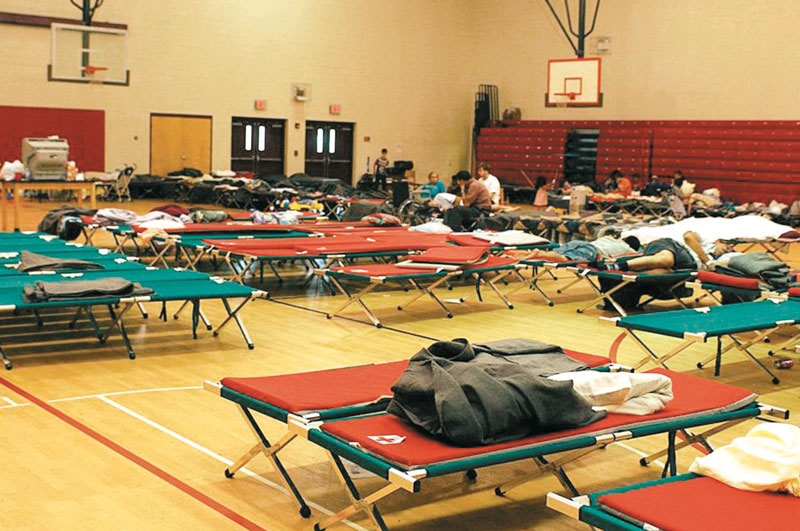Step 7: Reconnect and Restore
The days after the earthquake, follow your plan
Stay away from the coast until officials declare it safe to return.
Disaster sightseeing put you in danger and hampers efforts of response personel.
IF YOUR HOME isn’t damaged, STAY THERE.
Sheltering in place is the safest thing to do even if the power is out.
- Do not use matches, lighters, or candles indoors.
- Never use a camp stove, gas lantern or heater, gas or charcoal grill, or gas generator indoors.
BE IN COMMUNICATION AND STAY INFORMED
- LET PEOPLE KNOW YOU ARE OK. TEXT your out-of-area contact to tell them where you are. Stay off your phone to keep the lines open for emergency communications.
- Use your portable or car radio to find a station that is on the air and providing updates and safety advisories.
- Check on your neighbors.
FOOD AND WATER
- If the power is off, use refrigerated and frozen foods first. Food in the freezer may last several days.
- Use your stored water for drinking. You can also drink from water heaters, melted ice cubes, or canned vegetables. Don't drink water from swimming pools or hot tubs.
DOCUMENT DAMAGE
Use your phone or camera to photograph anything you suspect may have been damaged. Contact your insurance agent right away to begin your claims process.
IF YOU CANNOT STAY IN YOUR HOME
- Use your radio to find shelter locations.
- Bring your Grab and Go Bag with medications and personal information. Shelter space is limited.
Check to find out what you can bring, including pets.
THE FIRST WEEKS AFTER THE EARTHQUAKE
The earthquake and aftershocks take an emotional toll. Short tempers, memory lapses, and difficulty sleeping are
common.
- If you aren’t sure if your home is safe, contact the city or county for an inspection.
- If you turned off gas, only your utility provider can turn it back on.
- Have a professional inspect your fireplace or wood burning stove before you use them. Damage is difficult to see and could cause a chimney fire or poisonous gas release.
- Locate and or replace critical documents that may have been misplaced, damaged, or destroyed.
RUMORS ARE RAMPANT IN THE AFTERMATH OF A DISASTER
VERIFY INFORMATION FROM A REPUTABLE SOURCE BEFORE PASSING IT ON
